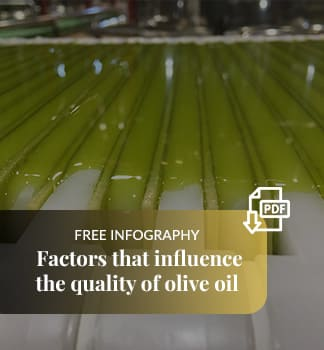The Olive Oil, known since time immemorial as the 'liquid gold,' has been and continues to be a fundamental pillar in Mediterranean cuisine and in the history of humanity.
However, in recent years, this prized product has experienced an unprecedented surge in demand and global interest.
In this article, we will explore the reasons behind this growth and analyze why investing in the olive oil sector has become an attractive opportunity for investors, as well as for olive oil lovers and grove owners.
Our goal is to present the benefits and opportunities offered by the Olive Oil sector as an investment option.
We will analyze the current market, the benefits associated with this growing industry, and the challenges it entails.
Additionally, we will examine the various investment opportunities available in the sector and how technological innovations are paving the way for a promising future.
Why Invest in Olive Oil?
Analysis of the Current Market and Future Projections
The Olive Oil market has experienced substantial growth in recent years. Increasing awareness of the health benefits and culinary properties of Olive Oil has led to a significant rise in global demand.
Both consumers and chefs and culinary experts have increasingly valued the quality of Olive Oil, thus driving the market towards new opportunities
Regionally, the Mediterranean remains the undisputed leader in Olive Oil production, with countries such as Spain, Italy, Portugal, and Greece at the forefront. However, other countries are also venturing into production, opening up new investment opportunities in different parts of the world.
Trends and Factors Driving Sector Growth
Several factors have contributed to the rise of the Olive Oil sector. Among them, the shift in consumer preferences towards healthier and more sustainable eating stands out. Extra virgin Olive Oil, rich in antioxidants and healthy fats, has become a cornerstone of the Mediterranean diet and other cuisines around the world.
Furthermore, growing interest in sustainability and environmental conservation has led consumers to gravitate towards products sourced from responsible and sustainable origins.
Olive groves and Olive Oil production provide a clear example of how agriculture can be carried out sustainably, increasing appeal for ethical and environmentally-conscious investors.
Benefits of Investing in Olive Oil
Health and Wellness: Healthy Properties of Olive Oil and Its Popularity in Conscious Eating
Olive Oil has been praised for its positive impact on health for centuries.
Numerous studies have shown that regular consumption can reduce the risk of cardiovascular diseases, improve lipid profiles, and have antioxidant and anti-inflammatory effects.
The trend towards conscious eating has driven demand for natural and healthy products, making Olive Oil a preferred choice in the kitchen and on the table.
Sustainability: Focus on Sustainable Production and Its Appeal to Responsible Investors
Olive Oil production has proven to be compatible with environmental and social sustainability.
Traditional Olive groves are unique ecosystems that contribute to biodiversity and can be managed sustainably over time.
Responsible agricultural practices and efficient water use make Olive cultivation a role model in sustainable agriculture.
This presents an opportunity for ethical and environmentally-conscious investors to support projects committed to sustainability.
Market Stability: Historical Behavior of the Olive Oil Market and Its Resistance to Economic Crises
The Olive Oil market has shown resilience to economic fluctuations and international crises.
Demand for Olive Oil remains constant due to its essential role in cooking and eating.
Additionally, the growing popularity of Olive Oil in emerging markets has contributed to the stability and sustained growth of the industry.
Risks and Challenges
Despite the advantages and opportunities offered by the Olive Oil sector, it is not without risks and challenges. It is essential for those entering this exciting sector to be informed and prepared to face possible obstacles. Some of the main challenges include:
1. Price Volatility: Olive Oil prices can vary significantly due to climatic, political, and economic factors, which can affect profit margins.
2. Competition and Quality: The market is competitive, and maintaining high-quality standards is crucial to stand out and gain consumer trust.
3. Climate Risks: Extreme weather conditions can affect production and crop quality, impacting producers' income.
4. Regulations and Legislation: Regulations in the agricultural sector may vary by region, and it is important to be aware of legal and sanitary requirements.
To mitigate these risks, comprehensive knowledge and understanding of the sector are essential.
Discover more about the world of olive oil on our website. Click here!
We conclude as always, with Bill Gates and his response when asked where he would invest his money, to which he responded directly and decisively: "invest in your education".
In other words, the founder of Microsoft believes that the best investment is to invest in one's own education.
.png)






